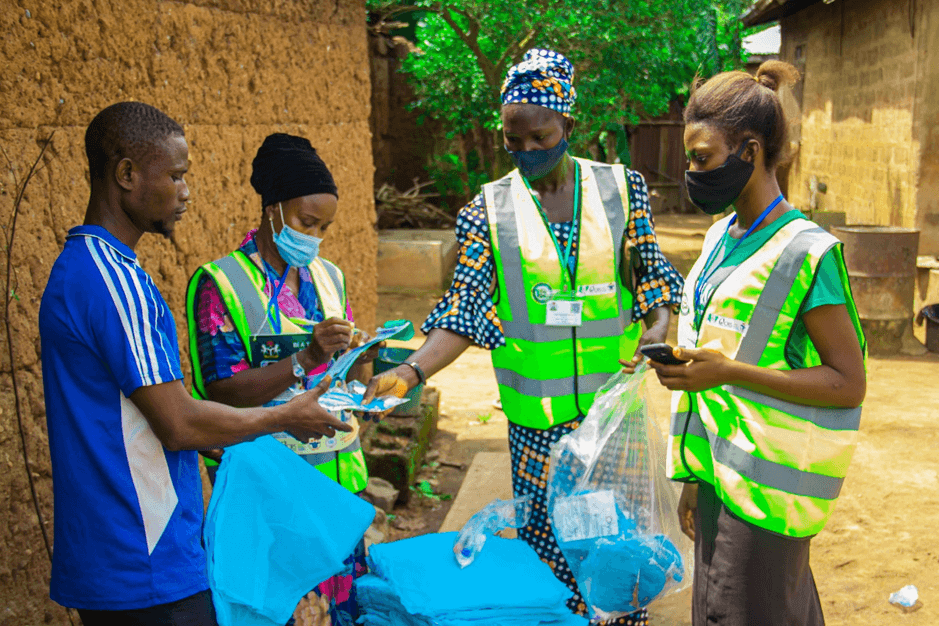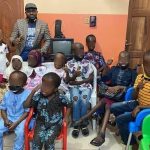DANJA, KATSINA: When Ismail Maikudi’s six-year-old son came down with severe malaria in May 2022, doctors at the Danja Comprehensive Healthcare in Bagaruwa community, Katsina State, said he needed a blood transfusion as part of treatment. But, sadly, the boy died during the transfusion.
Spread from person to person through mosquito bites, malaria remains one of the world’s most severe public health problems. The World Health Organisation’s 2021 World Malaria Report says in 2021 alone, the world recorded 241 million clinical malaria cases and 627,000 deaths. About 95% of those cases and 96% of the deaths were in Africa.
The report also says Nigeria contributed more (27%) to all global malaria cases and recorded the highest malaria-related deaths at 32%.
Until his son’s malaria case and eventual death, Maikudi cared less about his family using products like treated mosquito nets and insecticides to prevent mosquito bites.
“Had it been I knew the importance of using mosquito nets to prevent mosquito bites before my son died, I would have saved,” he said.
Nets, more nets, and drugs
Every night these days, Maikudi makes sure his six remaining children sleep under the safety of two insecticide-treated nets; while he shares one with his wife. And he got all three nets for free.
In what appeared to be a coincidence, just about the same time his son died, agents from a group called Society for Family Health or SFH had visited his rural community to distribute nets to residents without charge and educate them on the importance of using them to prevent mosquito bites and malaria.
His experience, coupled with explanations from SFH agents, left Maikudi with one resolve: to do his best to protect his family against mosquito bites and malaria.
SFH was founded in 1985 (by Olikoye Ransome-Kuti, a professor of paediatrics and Nigeria’s former health minister; Mallam Dahiru Wali, a pharmacist; and Ifeyinwa Nzeako, a former Appeal Court justice), with an initial focus on family planning and child health.
But it later developed health programmes beyond child health and family planning, with universal health coverage in mind. One of those programmes was its Malaria Prevention and Treatment project introduced in 2002 and aimed to reduce Nigeria’s malaria burden.
SFH partners with communities, the government, donors, and the private sector to achieve it. It uses a combination of programmes, starting with behaviour change communication, which involves selecting and training agents in Nigeria’s 36 states to go from house to house, enlightening community members on the importance of using treated insecticide nets for prevention and treatment options if infected.
“We also work with organisations, televisions, and radio stations [to educate the people],” Earnest Nwokolo, SFH’s project director, said. After educating the people, the agents distribute treated nets to them.
SFH has handed out 122.5 million nets between 2009 and 2021 while advocating for the government to invest more in malaria interventions, Nwokolo said. And by the end of 2022 alone, SFH would have distributed about 22 million nets in six states: Katsina, Kaduna, Niger, Kano, Jigawa, and Ogun, Nwokolo added.
Aware that prevention efforts sometimes fail, resulting in malaria transmission, in 2012, it introduced its malaria rapid diagnostic tests (RDTs) programme, a method involving the use of a portable device to detect malaria antigens in the blood.
SFH gets the devices using procurement agents. It then sends the devices to selected partnering private hospitals in local communities through its sub-grant partners (like the Planned Parenthood Federation of Nigeria, Africare, Errand Express, and ACOMIN).
“People will go to those private hospitals for [free] testing,” said Nwokolo, adding that the hospitals’ representatives, as part of the partnership agreement, also go to communities to create awareness about the availability of the free testing service in their facilities.
SFH has distributed about 20 million RDT devices through sub-grant partners to 340 private hospitals and clinics across 22 states since 2012, he said.
Those diagnosed with malaria are given artemisinin-based combination therapies or ACTs. ACT is a drug with mixed compounds derived from an anti-malaria extract called artemisinins and those from another class of antimalarial drugs. It is used to effectively treat uncomplicated malaria and prevent parasite resistance.
Nwokolo said SFH has given out 50 million doses of ACTs in some southern and northern Nigerian states with high malaria burdens, including Katsina, Kaduna, Kano, Niger, Taraba, Osun, Ogun, Niger, Yobe, and Adamawa.
Impact
Since 2010, Nigeria’s malaria burden has continued to reduce. For example, the 2015 Nigeria Malaria Indicator Survey or NMIS shows that between 2010 and 2015, malaria prevalence among children aged six to 59 weeks dropped from 42% to 27%. It came further down to 24.3 in 2020, according to a new 2021 survey.
Nwokolo claims that SFH’s intervention (alongside other government-led interventions against malaria) contributed partly to the drop in the national prevalence.
The NMIS is carried out by the National Malaria Elimination Programme, a department under the National Malaria and Vector Control Division of the ministry of health, at least every five years. And the 2010 survey lists SFH as one of its partners, validating Nwokolo’s claims.
And Maikudi told Prime Progress that since his family started sleeping under the safety of insecticide-treated nets, “we [have been] free from malaria disease.”
However, it appears SFH is struggling hard to sustain the campaign. Some of its programmes are either being slowed or stopped completely due to reduced or stopped cash inflow from funders, including USAID and the Global Fund to Fight AIDS.
For example, when the RDT malaria intervention started in 2012, it covered all 36 states; but it was later reduced to 24 and then suspended in 2017.
Besides, incidences of insecurity, especially up north where banditry, kidnapping, and terrorist attacks have continued since 2009, make it hard for SFH agents to access some malaria-high-burdened rural communities.
This story was produced with the support of Nigeria Health Watch through the Solutions Journalism Network, a nonprofit organisation dedicated to rigorous and compelling reporting about responses to social problems.
In Danja, Katsina, Ismail Maikudi’s son died from severe malaria during a blood transfusion in May 2022. This event highlighted the severity of malaria, which remains a critical public health issue, particularly in Africa. The World Health Organisation reported 241 million malaria cases and 627,000 deaths in 2021, with 95% of cases and 96% of deaths in Africa, and Nigeria contributing significantly.
SFH (Society for Family Health), founded in 1985, aims to reduce Nigeria's malaria burden through programs like the Malaria Prevention and Treatment project. SFH distributes insecticide-treated nets, conducts behavior change communication, and provides rapid diagnostic tests (RDTs) and artemisinin-based combination therapies (ACTs) to detect and treat malaria. They have distributed millions of nets and RDT devices, significantly contributing to reduced malaria prevalence in Nigeria.
Despite their successes, SFH faces challenges such as funding cuts from donors like USAID and the Global Fund, as well as security issues in northern Nigeria. These challenges have reduced the scope of their programs.
Overall, SFH's initiatives have played a part in lowering Nigeria’s malaria prevalence, with the 2020 NMIS showing a drop to 24.3% among children from the 42% reported in 2010. However, maintaining these efforts remains difficult due to external challenges.






